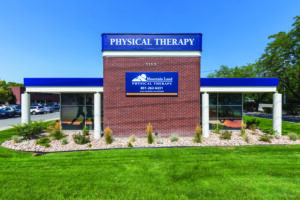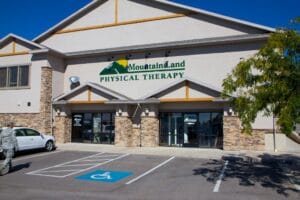Electromyography
Electromyography or EMG, serves as a diagnostic procedure employed to assess the well-being of muscles and their associated nerves. Through EMG testing, medical professionals can identify potential muscle dysfunction, nerve abnormalities, or any disruptions in the signal transmission between muscles and nerves, providing valuable insights into your overall neuromuscular health.
What to Expect
During the EMG procedure, a small electrical current is applied to the skin to measure conductivity of nerves. Next, a needle electrode will be inserted into the affected muscle, causing minimal discomfort without significant pain. Any discomfort from the needle’s removal should quickly subside. You may be asked to perform specific movements or contract the affected muscle to identify signals and areas of inactivity.

While some discomfort during movement is possible, the physical therapist will not request extreme movements. You might also be asked to change positions during the testing.
Following the EMG, you might experience some soreness, but it should resolve soon. The physical therapist can suggest remedies to alleviate any discomfort at home.
After the completion of the EMG, the physical therapist will analyze the test results and share them with your physician. During your next appointment, your physician will review the results with you, and if necessary, the physical therapist will design a personalized treatment plan to alleviate pain and address your condition.

How to Prepare for my Appointment
- Please wear loose fitting clothing. We will need to be able to access the legs just above the knees for lower extremity testing, and up to the shoulder for upper extremity testing.
- Keep your skin clean of any lotions, creams, or Vasoline on the limbs being tested.
- We will remove jewelry/watches from the wrist and fingers (except the ring finger). Necklaces and other facial jewelry should not interfere with the test.
- No restrictions of eating/drinking or taking medications (except for Mestonin or muscle relaxers.)
- The EMG specialist will address any concerns you have prior to beginning the test.
Frequently Asked Questions
Q: What is an EMG test? What kind of information does it provide?
A: Electromyography (EMG) is a diagnostic test of your neuromuscular system, including the nerves that exit from your spinal cord to the muscles they supply. It provides detailed information on the conductivity of your nerves such as the speed and strength of the signal from end to end. This information can be synthesized to create a picture of your neuromuscular health and uncover problems such as nerve damage or diseases of nerves and muscles.
Q: What to expect with an EMG?
A: Your nerve test will take about 30-60 minutes. During the EMG procedure, a small electrical current is applied to the skin to measure the conductivity of nerves. Next, a needle electrode will be inserted into the affected muscle, causing minimal discomfort without significant pain. You may be asked to perform specific movements or contract the affected muscle to identify signals and areas of inactivity.
Q: Is it painful?
A: We make every effort to provide a pleasant experience and minimize discomfort during the test. Most people report the procedure to be uncomfortable at times, but rarely painful. Any discomfort from the needle’s removal should quickly subside. Following the EMG, you might experience some soreness, but it should resolve soon. The physical therapist can suggest remedies to alleviate any discomfort at home.
Q: When will I learn about my results?
A: The finalized EMG Report will be sent to the referring provider by the end of the next business day from the day the test was performed. You will receive results from your referring provider.
Meet our EMG & Nerve Conduction Specialist

Matt Okelberry PT, DPT, ECS, OCS – Clinic Director, Physical Therapist: Matt graduated with an Exercise Science degree from Brigham Young University in 2016. He went on to earn his Doctor of Physical Therapy degree from South College in 2018. He later went on to complete a residency with EMG Solutions in Nashville, TN.
He is a residency-trained Electrophysiologic Clinical Specialist (ECS) and an Orthopedic Clinical Specialist (OCS). He is an expert in nerve testing, excelling in nerve conduction (NCV) and electromyography (EMG). He provides essential information to physicians, aiding in pain source identification and recommending suitable medical interventions and physical therapy options. Matt’s therapy philosophy centers on the belief that “movement is medicine and you can’t go wrong getting strong.” He takes delight in unraveling each patient’s unique puzzle by combining their story, symptoms, and objective data from nerve tests to help them get the best treatment.















